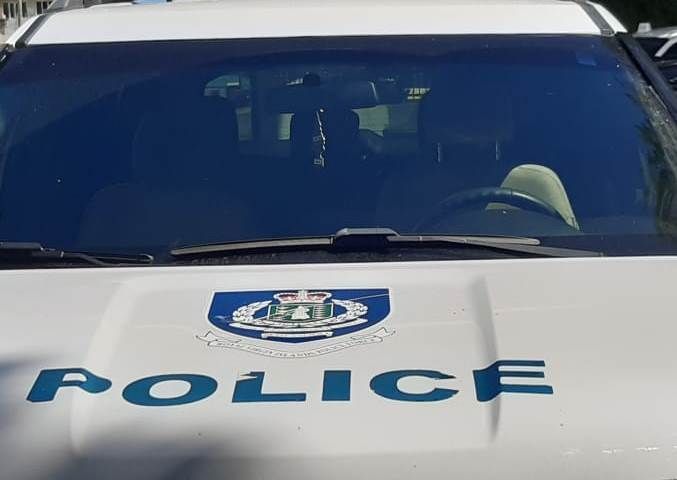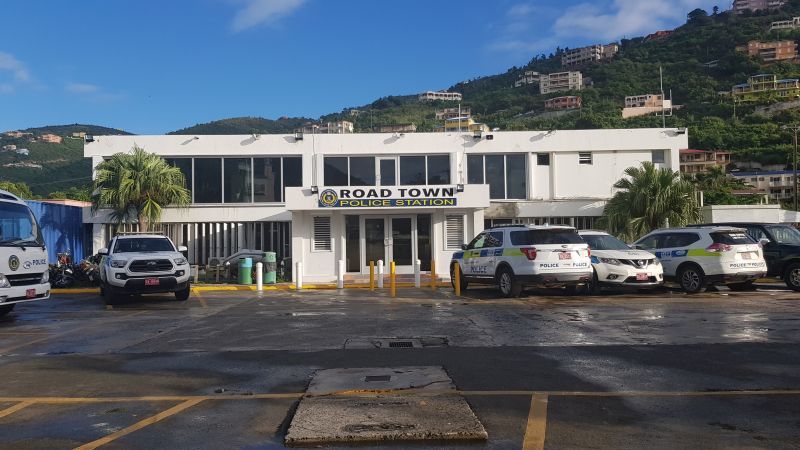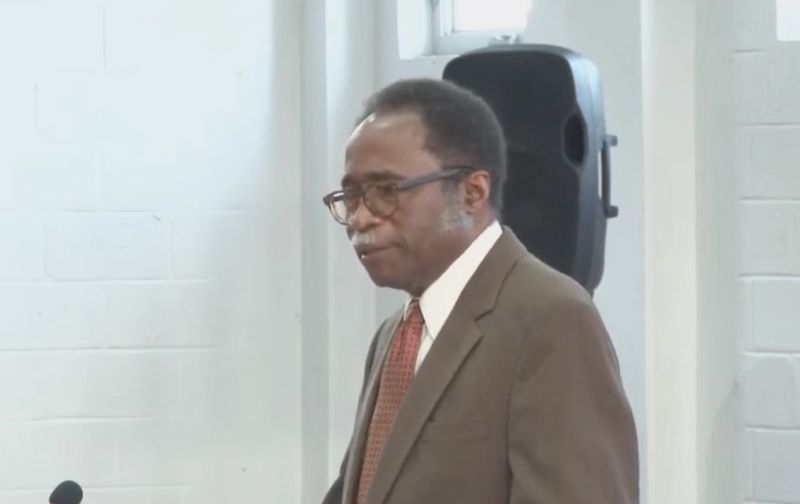
New Police Act will give RVIPF ‘teeth’ in DNA, detainments – CoP Matthews
Commissioner Matthews said; however, during initial discussions members of the House rightly identified what was going to be controversial, and one of the areas is about the taking of DNA from suspects ‘by force’.
“That one statement created an entire TV show here, and there were reporters talking about this is an outrage, and you cannot allow the commissioner can do this and I think that there was the vision of the RVIPF holding somebody down and using a needle and drawing blood and so forth and beating them into submission,” he said yesterday, March 18, 2021, at a press conference with His Excellency the Governor, John J. Rankin, CMG and Premier and Minister of Finance, Honourable Andrew A. Fahie (R1) to address matters relating to Crime and Public Safety.
According to Mr Matthews, this legislation is being taken from existing legislation, and it dates back to 1984 in the UK and “What that actually boils down to is if somebody refuses to give a DNA sample and they are suspected of a serious crime, and it has to be certain categories of crime, the taking by force could be a plastic comb running through somebody’s hair to get a sample of hair, as simple as that.
“Now they might object to that, and the Act talks about reasonable force to do that. The current situation is we cannot take DNA at all unless we charge somebody, and therefore if we haven’t enough evidence to charge and we ask somebody to voluntarily give DNA they can say no. And even though we might think they are a prime suspect, we got blood on the scene, we can’t do anything about that if they say no; and that’s a major, major problem for crime investigation to any law enforcement.”
He said it could also mean the use of a cotton swab to collect saliva.
“DNA is a critical crime-fighting tool, so why would we not want our police force to have access to the best crime-fighting tools?” he questioned.
 The Police Act, 2019, no stranger to the
HoA, was debated during the Second Session of the Fourth House of
Assembly in July 2020 but was moved to a special select committee of the
whole House.
The Police Act, 2019, no stranger to the
HoA, was debated during the Second Session of the Fourth House of
Assembly in July 2020 but was moved to a special select committee of the
whole House.
 The new Police Act will provide the RVIPF
with the powers to detain persons beyond 24 hours and, if the needs be,
can apply for extensions.
The new Police Act will provide the RVIPF
with the powers to detain persons beyond 24 hours and, if the needs be,
can apply for extensions.
Help with detainment
The Commissioner of Police was also pleased about another area.
“This bill, if the House of Assembly makes it law, will change the way policing and law enforcement operates in the territory, and it will protect people’s rights, their human rights but it will also give stronger powers to police for example, we can only hold somebody in custody for 24 hours without charge. That is way behind compared to a lot of jurisdictions around the world.”
He said if the RVIPF is unable to gather ‘sufficient evidence’ on a suspect in their custody, that individual must be released.
The new Act will provide the RVIPF with the powers to detain persons beyond 24 hours and, if the needs be, can apply for extensions.
“In an island community, once you let that person go, you have no control of them; they can leave the territory very, very quickly. So I am keen to see modernised legislation, but it needs to be legislation that people of this territory also are accepting of. We will need to give the Force teeth needed to bite, which is offered in the new Police Act.”
 Leading the objections over certain
aspects of the Police Act in July 2020 was Opposition Legislator, Hon
Julian Fraser RA (R3) who said that the bill seeks to repeal and replace
the Police Act Cap 165 and said it was imperative that the VI people
know what this replacement is about.
Leading the objections over certain
aspects of the Police Act in July 2020 was Opposition Legislator, Hon
Julian Fraser RA (R3) who said that the bill seeks to repeal and replace
the Police Act Cap 165 and said it was imperative that the VI people
know what this replacement is about.
Strong Objections
The Police Act, 2019, no stranger to the HoA, was debated during the Second Session of the Fourth House of Assembly in July 2020 but was moved to a special select committee of the whole House.
Leading the objections over certain aspects of the bill was Opposition Legislator, Hon Julian Fraser RA (R3) who said that the bill seeks to repeal and replace the Police Act Cap 165 and said it was imperative that the VI people know what this replacement is about.
“Not just us but the public. The public should have a say in what this bill is going to be,” he argued.
Several other concerns raised included; that members of the disciplined force, such as Commissioner, Deputy Commissioner and Assistant Commissioner would escape trial for offences including for discipline and that officers convicted in a court for grave or repeated offences would face demotion or charge.
“Unless he was convicted by a court for speeding there should be no reduction of rank, they should be fired. It’s a police officer we [are] talking about,” Hon Fraser said.
Other issues highlighted by the legislator was that the bill also allowed the police officers to return to the force after prison time and he called troubling, Clause 185 of the bill which provided immunity for police officers acting under the authority of a warrant, amongst other concerns.
The Police Act 2019 is being taken to the people for their feedback before it returns to the HoA.










